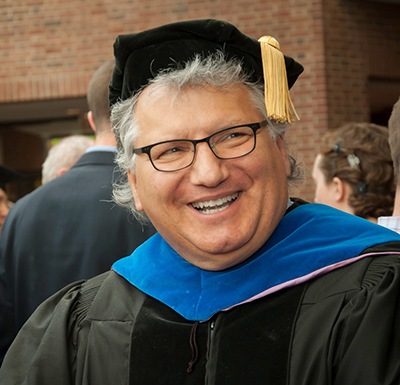Danish parents are chill: A lecture on parenting
By Kayla Britt, MST Editor
“Danish parents are chill,” proclaims Dr. Chris Boyatzis of Bucknell University. Boyatzis gave a thought-provoking lecture on his research comparing parenting in Denmark and the US on Thursday, Sept. 13. Dr. Boyatzis is mainly interested in the concepts of risk aversion, punishment and child autonomy as they relate to parenting and culture in the US and Denmark. There are some similarities along with differences between Danish and American societies; the Danes have a social welfare system, where everyone pays high taxes and all families in general have more comfortable lives. Interestingly, the Danish are also the happiest country in the world, as reported by the United Nations. As Dr. Boyatzis himself said, “I have a crush on Tom Brady and Denmark.”
How we raise children is largely dependent on our culture. Culture determines what is “normal.” In other cultures, babies sleep with their parents; American pediatricians, however, deem the practice to be dangerous, due to the risk of rolling over. In one culture, parents roll their babies in cow dung in order to ward off evil spirits. Additionally, it is a cultural ritual in Denmark at age three for toddlers to bring their pacifiers to “pacifier trees” and write a goodbye note. “This is a country that loves children,” said Dr. Boyatzis of Denmark.
American parents, and Americans in general, tend to have a “worst case” mentality. American parenting is characterized by high involvement and worry: “paranoid parenting.” Dr. Boyatzis spoke of the paradoxical risk estimation: we fear children being snatched by a kidnapper while we should be more concerned about the adults in our children’s lives.
On the other hand, Danish parents believe that children are competent and autonomous and have a child-centered perspective. They focus on what kids can do rather than what they cannot. They believe that even time-outs are inappropriate. Danish parents also try to expose their children to the realities of life from a young age. It is not uncommon to see five-year-olds using power tools or knives, a sight that would make most American parents break a sweat.
Dr. Boyatzis set up a study to methodologically compare Danish and American mothers’ parenting styles. He found that U.S. moms discipline their children significantly more than Danish moms do and that Danish moms also encourage more autonomy and are more comfortable with risk. Unsurprisingly, there were also some similarities between the two parenting styles, most notably in child-rearing behavior and child-rearing goals. It appears that both Danish and American moms want to raise happy, successful children but have different ideas about how to accomplish that end result. Clearly, culture affects how we choose to raise children and what practices are seen as acceptable and normal. Other cultures provide both a window and a mirror to American practices–we may have something to learn from other societies’ mentalities and lifestyles.

